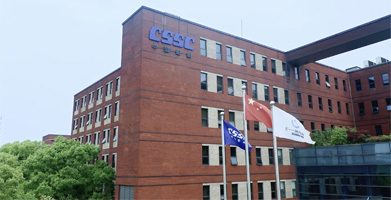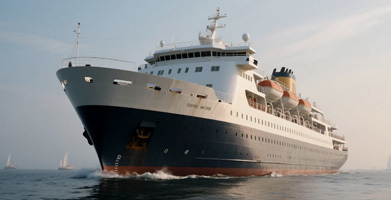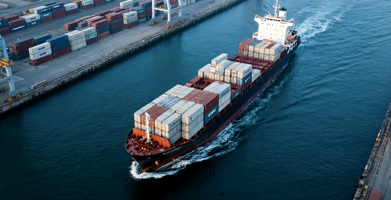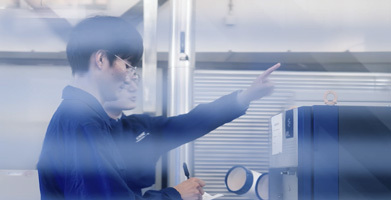◉ BLOG
To be a pioneer in ocean-going environmental protection with enthusiasm and innovation.
The world's first set and first realization! Onboard Carbon Capture and Storage(OCCS) System Completed the Ecological Closed Loop of the Full Process of CO₂
Release time :
2024-05-10
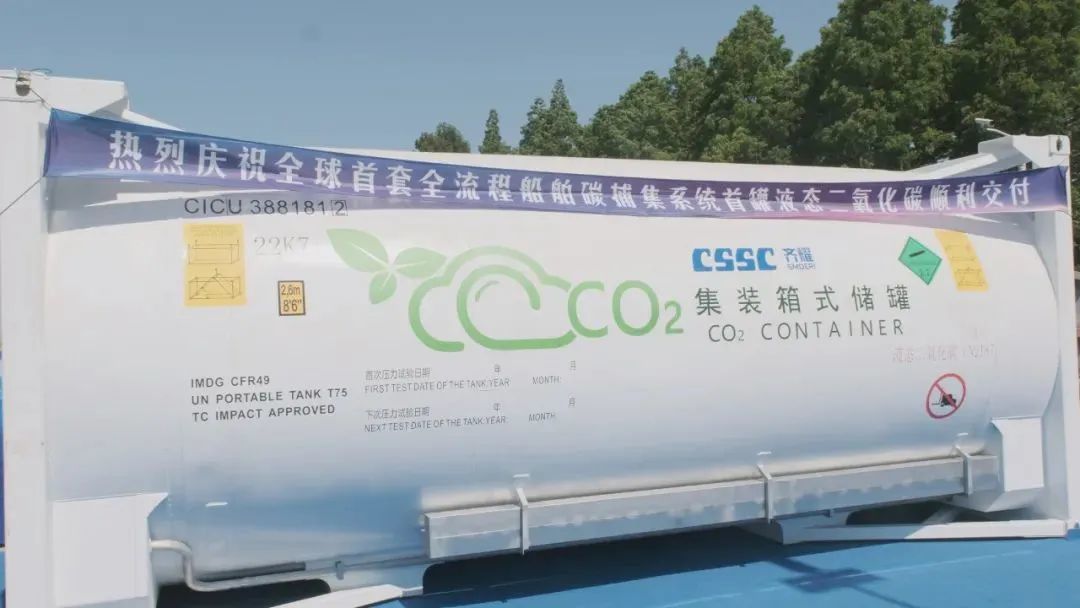
On May 10, 2024, the “Ceremony and Conference for the First LCO2 Offloading and Reception from the World's First Full-Process OCCS”was held in Shanghai, and the first tank of liquid carbon dioxide unloaded at the shore end was formally delivered to the user by SMDERI QET. It marks the first time that onboard carbon capture and storage technology has completed the ecological closed loop of the full process of “carbon dioxide capture-- liquefaction storage--unloading--transferring--reuse” in the world, and it has become a milestone case in the carbon capture and storage industry for ships.
Onboard carbon capture and storage (OCCS) system developed by SMDERI QET ,utilizes organic amine cyclic adsorption technology to adsorb CO₂from the ship's exhaust gas, and then undergoes the process of separation, compression and liquefaction, and finally stores liquid CO₂with a high purity.
On April 30, a 14,000 TEU large container vessel equipped with the world's first full-flow OCCS system docked at Shanghai Yangshan Port and successfully completed the unloading of liquid CO₂.
SMDERI QET provided an integrated desulfurization and decarbonization solution for the 14,000 TEU large container vessel by installing “EGCs +OCCS System”. The CO₂absorption rate of the decarbonization tower could reach more than 80%, and can capture up to 6.4 tons of CO₂per hour. After the modification, the vessel could continue to use traditional high sulfur bunker fuel with reduced carbon emissions and at the same time, the CII rating will be upgraded to Class C.
As the sustainable development of green shipping increasingly becomes a global consensus, OCCS is attracting much attention from the marine industry. According to the “2023 Low-carbon Development Outlook for Shipping” released by China Classification Society(CCS)based on the latest research results, in addition to alternative fuels such as liquefied natural gas, methanol, ammonia, etc., OCCS is a strategic technology that is expected to realize large-scale decarbonization of shipping, and it has the potential to significantly reduce carbon emissions from shipping.
Joint efforts to build a carbon cycle green industry chain
Carbon dioxide trans-shipment is an important link in the green low-carbon industry chain of ships based on OCCS. Since OCCS has not yet been used on a large scale, and domestic ports have not yet built comprehensive supporting facilities for carbon dioxide recovery, the unloading and transshipment of liquid carbon dioxide has become a difficult problem.
As the equipment provider, SMDERI QET creatively formulated a complete set of technical system and operation system for CO₂offloading from ships to shore in view of the lack of CO2 recovery supporting facilities in ports. Peric Technology Co.,Ltd. gave full play to its industrial advantages in CO₂back-end dissipation and utilization.
The successful implementation and formal delivery of the full process ecological closed loop of the OCCS system not only provides a feasible path for the green and low-carbon development of the marine industry, but also is of great significance in promoting the development of the Carbon Neutrality Industry and supporting the greenhouse gas emission reduction strategic decision of International Maritime Organization(IMO).
In the future, based on the demonstration data and operation effect of the 14,000 TEU large container vessel, SMDERI QET will join hands with the upstream and downstream enterprises of the CO₂industry chain as well as the governmental departments to actively promote the relevant legislation and standard-setting work of IMO, so as to jointly improve the construction of the carbon cycle industry chain and make contribution to the realization of the net-zero emission of the shipping industry.
keyword :
Recommended News


